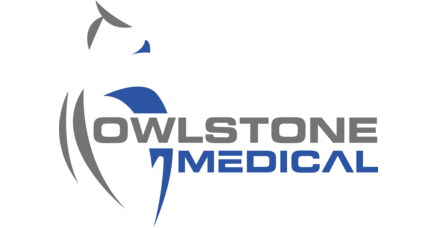- Data presented at EACR 2023 Congress, Italy, 12-15 June
- Findings presented from Phase 1 of the EVOLUTION study supports the application of D5-ethyl-ß-glucuronide as a non-invasive EVOC® probe for early cancer detection
- Additional promising EVOC probes for early lung cancer detection are in development
The results and research progress were presented in two posters at the EACR 2023 Congress, the annual meeting of the European Association for Cancer Research, held June 12-15 in Torino, Italy.
The poster ‘Proof-of-mechanism study for a diagnostic probe compound generating D5-ethanol as an on-breath reporter molecule for lung cancer – Evolution phase 1’ describes Owlstone’s efforts to establish D5-ethyl-ß-glucuronide as a non-invasive EVOC® Probe for early cancer detection. Previous work, described in the poster, has demonstrated the ability to detect D5-ethanol cleaved from the probe through the action of extracellular ß-glucuronidase in human cancer xenografted mice. Subsequently, Owlstone established the presence of extracellular ß-glucuronidase in tissue samples from human lung cancers, including at stage 1, and the ability to reliably detect D5-ethanol in human breath samples through Breath Biopsy after administration of the EVOC probe.
In-human clinical trials are now underway with Phase 1a (safety assessment in healthy humans) and Phase 1b (dose optimization study in subjects with and without lung cancer) of the EVOLUTION study almost complete. Preliminary results presented show excellent safety and tolerability and demonstrate proof of mechanism through the successful measurement of D5-Ethanol levels in breath samples from lung cancer patients .
The poster ‘Using exogenous volatile organic compound (EVOC) probes to target tumour-associated aldo-keto reductase activity: a potential tool to detect lung cancer’ describes a complementary EVOC probe approach for the early detection of lung cancer based on aldo-keto reductase (AKR) activity, a metabolic process linked with the body’s reaction to the damaging effects of high levels of oxidative stress from cancer. This study, performed in vitro on human lung cancer cells, evaluated the expression of AKRs and demonstrated the ability to measure AKR-associated volatile reporters from cancer cells.
Billy Boyle, co-founder and CEO at Owlstone Medical, said: “Through the studies presented, we are now confident we have the evidence we need to proceed to Phase 2 of the EVOLUTION study. This new multisite international trial will recruit up to 150 cases and 200 controls to optimize the test protocol and to establish test performance. We are also encouraged that a number of additional promising complementary EVOC probes are in our development pipeline, further enhancing our ability to address this high clinical need area.”
Lung cancer is one of the most common forms of cancer in the world with 2.21 million new cases in 2020 and is a leading cause of death (1.8 million globally in 20201), with 5-year survival at just 23.7% in the United States2. Early diagnosis can greatly improve the clinical outlook as patients diagnosed at an early stage have a 5-year survival rate of 56%, compared to just 5% for late stage3. While there are guidelines in place for the use of low dose computed tomography in the United States, uptake is less than 6%4 due to inconvenience, radiation dose, test performance, and in some cases cost. For this reason, there is an acute need for reliable and non-invasive screening solutions, and breath has emerged as a highly promising potential solution.
The posters presented can be viewed here:
- https://www.owlstonemedical.com/media/uploads/files/2023-05_Evolution_Poster_for_EACR_v2.pdf
- https://www.owlstonemedical.com/media/uploads/files/2023-05_AKR_Poster_for_EACRv2.pdf
- https://www.who.int/news-room/fact-sheets/detail/cancer
- https://www.lung.org/research/state-of-lung-cancer/key-findings
- http://www.lung.org/lung-health-and-diseases/lung-disease-lookup/lung-cancer/resource-library/lung-cancer-fact-sheet.html
- https://www.lung.org/media/press-releases/state-of-lung-cancer-2022



